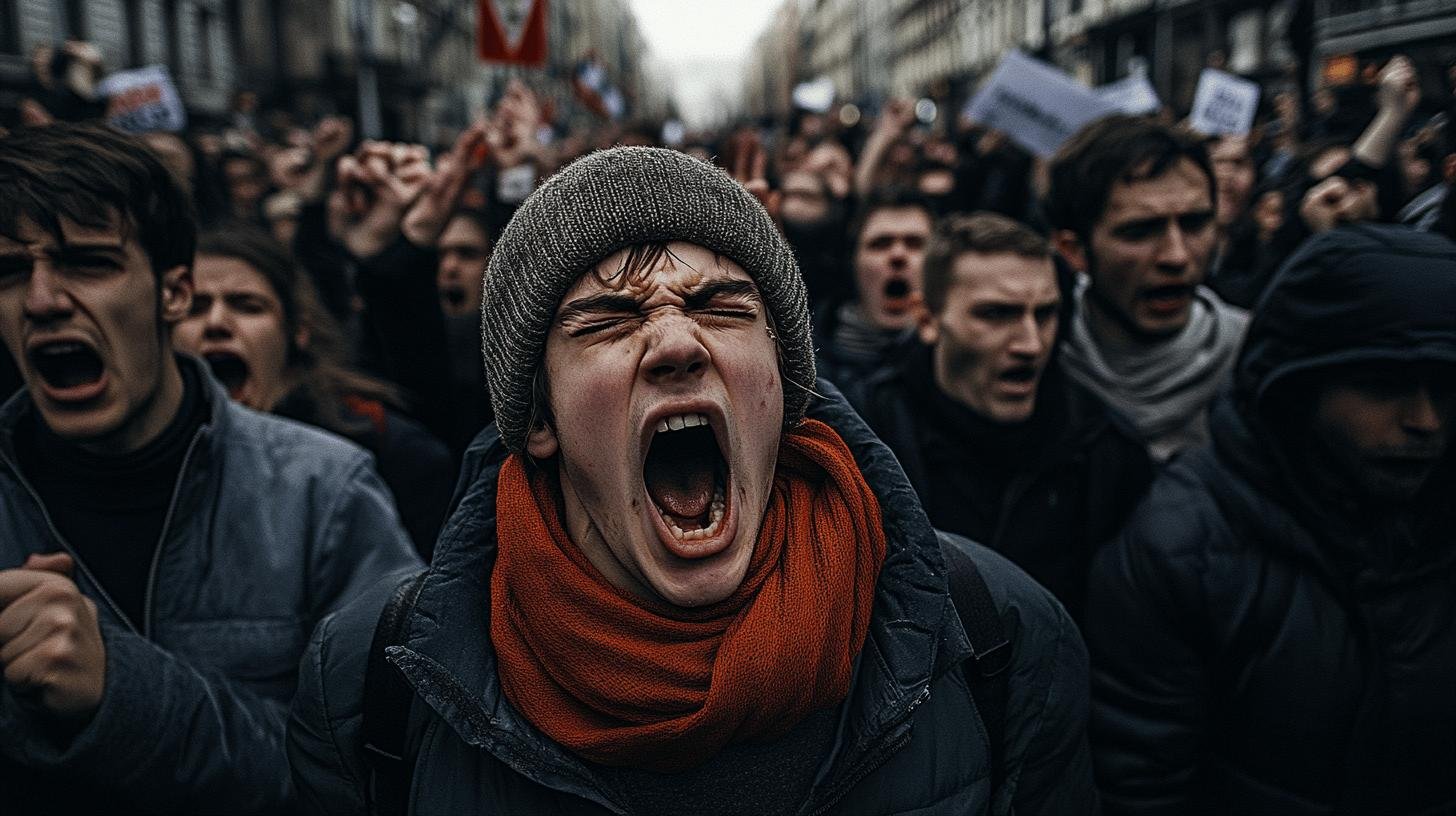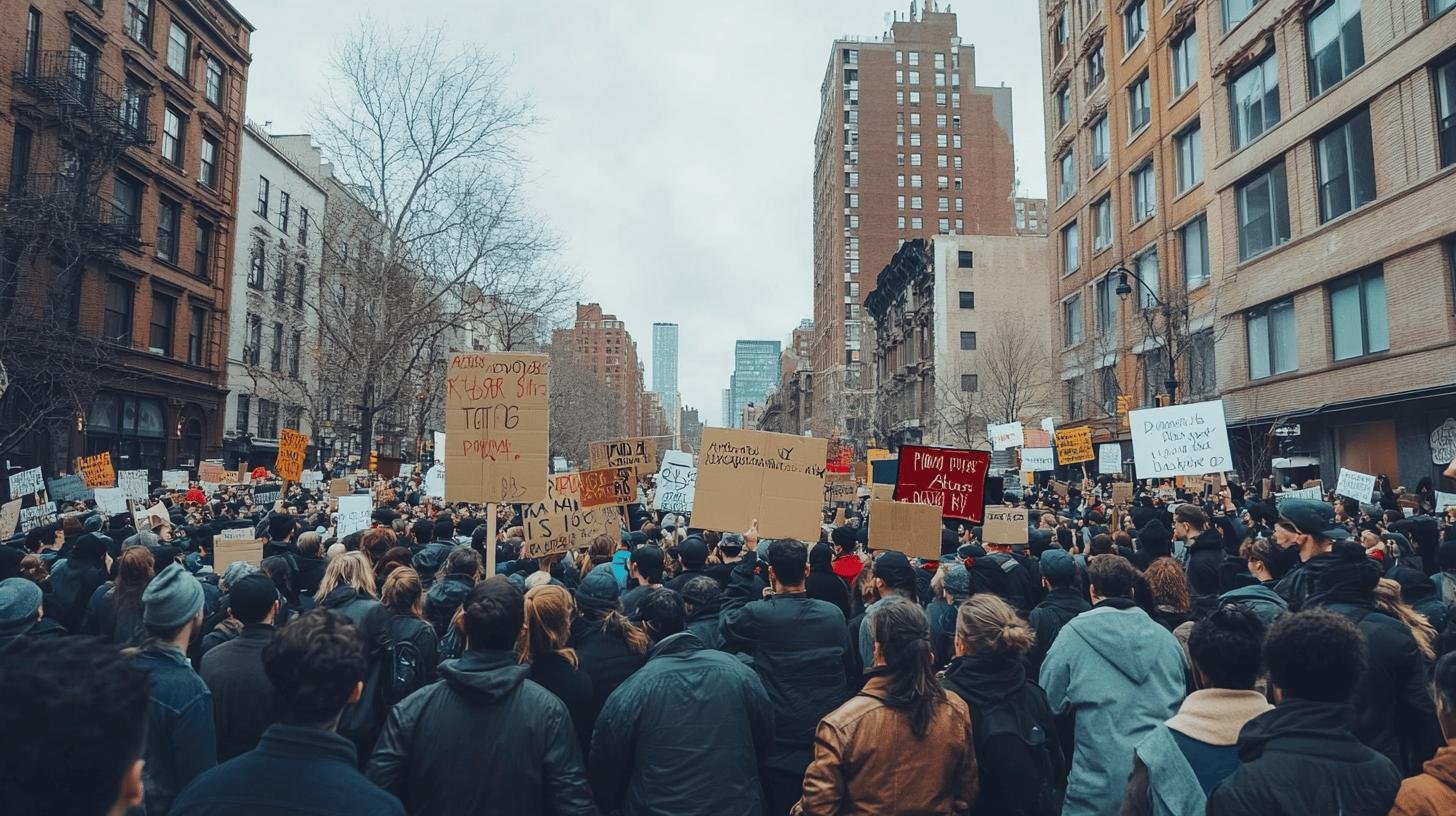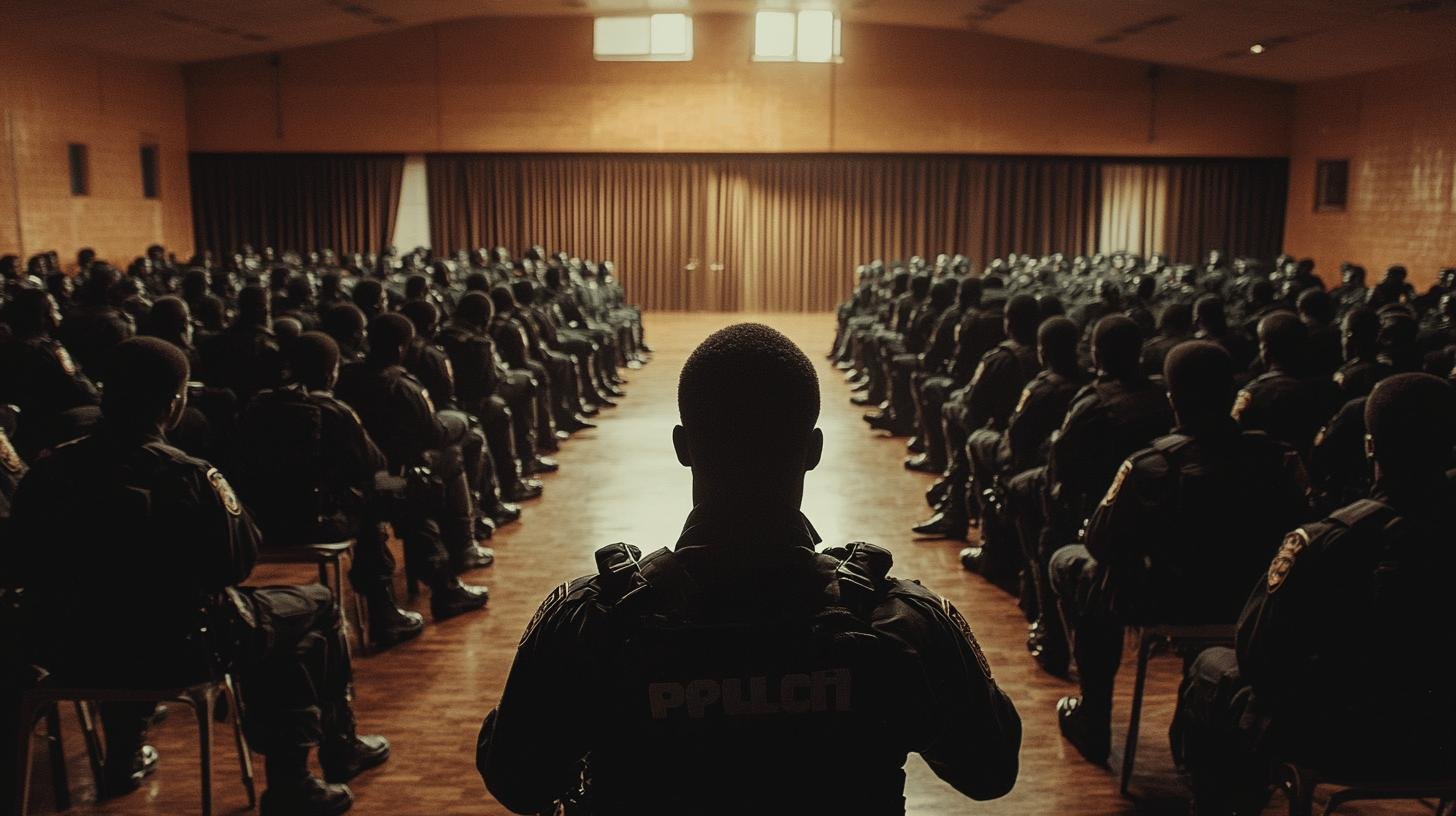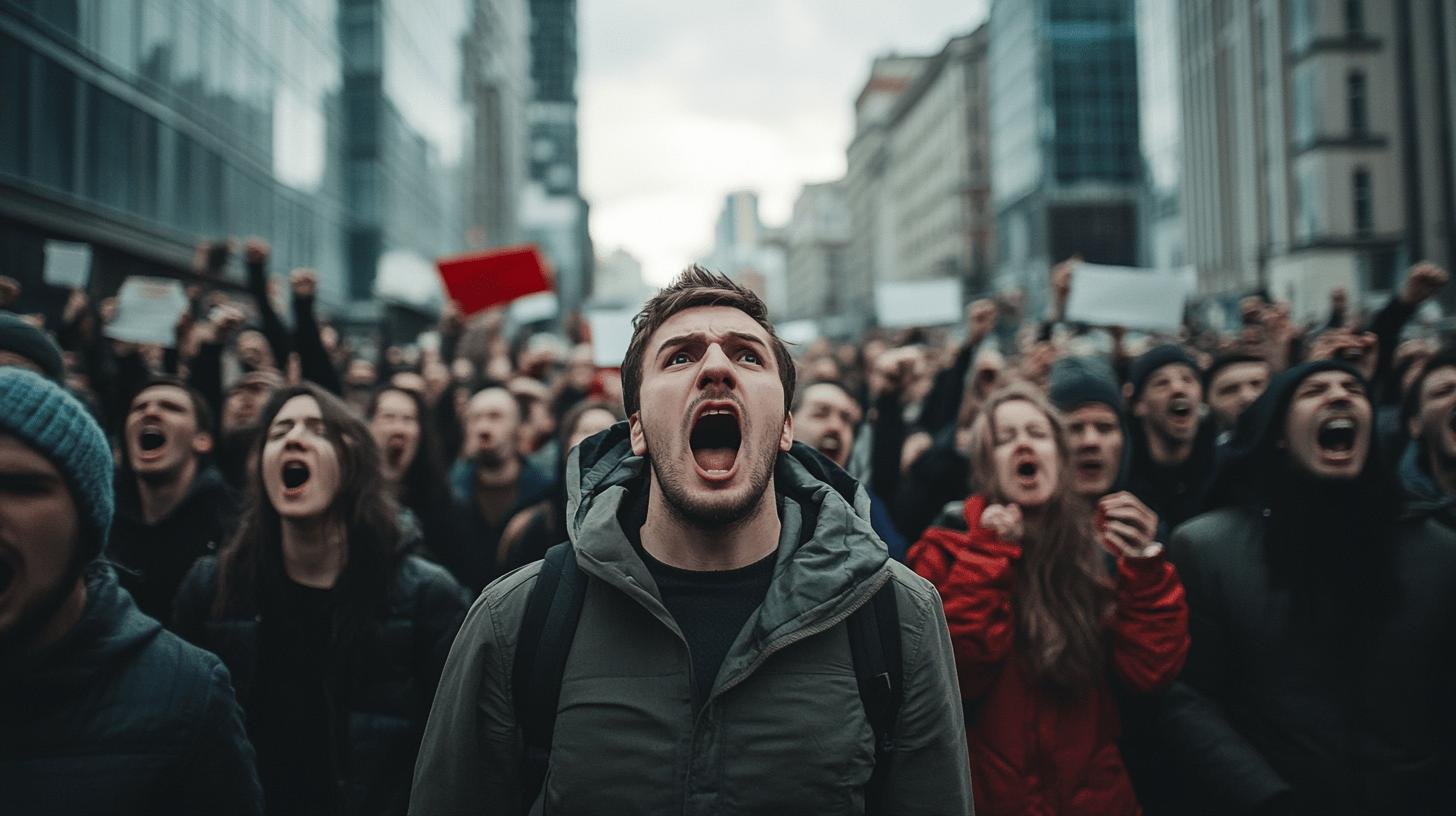TL;DR:
- Mob mentality, also known as herd mentality, leads individuals to act collectively without individual moral judgment.
- Key characteristics include loss of identity, impulsive behavior, and decreased personal responsibility.
- Psychological theories:
- Deindividuation: Loss of self-awareness in crowds.
- Social Identity: Group identity impacts behavior.
- Contagion: Rapid emotional spread amplifies mob actions.
- Modern effects: Economic losses, increased violence, and misinformation.
- Preventive measures: Promote critical thinking, encourage accountability, respect diverse opinions, and enhance law enforcement training.
Have you ever wondered why people act so differently in crowds? This brings us to an important question: why is mob mentality dangerous? When people get caught up in a mob, they sometimes do things they’d never do alone. This article will explore why mob mentality is dangerous and how it affects our world today. We’ll look at what causes it, some examples from history, and ways to stop it from happening.
Understanding Mob Mentality: Definition and Characteristics
Mob mentality, also called herd mentality, happens when individuals in a group act collectively without a central direction. People in mobs often lose their sense of individual identity and moral judgment. This leads to actions they might not consider when alone. The origins of mob mentality trace back to social psychology, where individuals are influenced by the behaviors and emotions of those around them.
Psychological and social factors play key roles in mob behavior. Anonymity within a large crowd makes people feel less accountable. The size of the group can amplify emotions, leading to heightened excitement or anger. Emotional contagion, where emotions spread quickly through the group, further fuels this behavior. These factors combined can lead to a loss of self-awareness and an increase in impulsive actions.
Mob mentality can be really dangerous for freedom of speech. When a mob forms, people might try to silence anyone who disagrees with them. This can happen both in real life and online. For example, a mob might shout down a speaker they don’t like or “cancel” someone on social media for having a different opinion. This is dangerous because it can make people afraid to speak their minds or share new ideas. In a healthy society, we need to hear different viewpoints, even if we don’t agree with them. Mob mentality can create an environment where only one view is allowed, which goes against the whole idea of free speech. It’s important to remember that freedom of speech protects all opinions, not just the ones we like.
Main Characteristics of Mob Mentality:
- Loss of individual identity
- Heightened emotional state
- Decreased sense of personal responsibility
- Increased impulsive behavior
- Influence by group dynamics
The Psychological Theories Behind Mob Mentality

Understanding the psychological theories behind mob mentality is critical for grasping why individuals act irrationally in crowds. These theories explain the triggers and dynamics of mob behavior, shedding light on what drives people to act collectively in ways they wouldn’t alone.
Deindividuation Theory
Deindividuation theory states that people in a crowd often lose self-awareness and personal responsibility. This makes them more likely to act irrationally and impulsively. In a group, individuals feel anonymous, so their actions are less guided by personal norms and more by the social cues and emotions of the crowd.
Social Identity Theory
Social identity theory suggests that people derive part of their identity from the groups they belong to. This identification results in in-group favoritism and out-group hostility. In mobs, individuals are influenced by the group’s collective identity, sometimes leading to extreme behaviors. The need to conform to group expectations often overrides personal moral judgments.
Contagion Theory
Contagion theory posits that emotions and behaviors can spread rapidly through crowds, much like a virus. In highly emotional states, people’s feelings and actions can quickly influence others around them. This emotional contagion can escalate mob behavior, leading to actions individuals might not consider if they were alone.
| Theory | Key Points |
|---|---|
| Deindividuation Theory | Loss of self-awareness and personal responsibility; increased impulsive behavior |
| Social Identity Theory | Group identity influences behavior; in-group favoritism and out-group hostility |
| Contagion Theory | Rapid spread of emotions and behaviors; heightened collective emotional state |
Modern-Day Mob Mentality: Recent Instances and Effects

Modern technology, especially social media, plays a major role in influencing mob behavior. Platforms like Twitter and Facebook enable rapid spread of information, quickly rallying large groups. Social media also provides a sense of anonymity, reducing personal accountability. This anonymity can embolden individuals to partake in actions they wouldn’t consider face-to-face, amplifying mob mentality.
Recent instances of mob mentality include the George Floyd riots of 2020. Sparked by his death, protests escalated into violent riots in various cities. The collective anger was fueled by continuous social media coverage. The consequences were devastating: widespread property damage, numerous injuries, and several deaths. This event underscores how quickly public sentiment can turn into destructive mob behavior.
Primary Effects of Modern-Day Mob Mentality:
- Economic losses due to property damage
- Increased violence and injuries
- Social and political instability
- Spread of misinformation and heightened fear
The Negative Effects of Mob Mentality on Individuals and Society
Mob mentality can have immediate and severe effects on individuals. People often lose their sense of identity and moral judgment, leading to impulsive actions they wouldn’t consider alone. This can result in personal harm, legal consequences, and lasting psychological trauma. Anonymity within a mob emboldens individuals to act aggressively, often leading to violence and property destruction.
The wider societal impacts of mob mentality are equally alarming. Economic consequences include significant property damage, crippling local businesses and costing communities millions in repairs. Social disruptions such as increased violence and heightened fear can destabilize communities, erode trust in public institutions, and create long-term societal divisions. The spread of misinformation within mobs only exacerbates these issues, leading to more chaos.
Experts stress the importance of addressing mob mentality. Understanding its psychological triggers and social dynamics is essential to mitigate its risks. Promoting critical thinking and individual accountability can counteract the dangerous effects of mob mentality. Statistics show that proactive measures can reduce the economic and social costs associated with mob-related violence and property damage.
Preventive Measures and Solutions to Counter Mob Mentality

Promoting critical thinking and individual accountability is essential to counter mob mentality. When people think critically, they analyze information before acting, reducing the likelihood of impulsive, collective behavior. Encouraging individual accountability ensures that people understand the consequences of their actions, even within a group. Creating environments where diverse opinions are respected can also reduce the echo chamber effect that often fuels mob behavior. Education about mob mentality’s psychological effects can equip individuals to resist being swept up in collective emotions.
Law enforcement plays a crucial role in managing and preventing mob behavior. Immediate consequences for violent actions can deter mob violence. Effective strategies include crowd control measures and using non-lethal methods to disperse mobs. A visible police presence can also help maintain order and prevent mob behavior escalation. Experts emphasize the importance of law enforcement training on handling large crowds and de-escalating volatile situations.
Practical Measures to Counter Mob Mentality:
- Promote critical thinking and media literacy
- Encourage individual accountability and personal responsibility
- Foster environments that respect diverse opinions
- Implement immediate consequences for violent actions
- Train law enforcement in effective crowd control and de-escalation techniques
Final Words
Now you understand why mob mentality is dangerous. It can turn normal people into a chaotic group that does harmful things. We’ve seen how it’s caused problems throughout history and even in recent events. But there’s hope! By thinking for ourselves, taking responsibility for our actions, and respecting different opinions, we can help prevent mob mentality. Remember, it’s crucial to stay aware of why mob mentality is dangerous and make our own choices, even when we’re in a group.
FAQ
Why is mob mentality dangerous?
Mob mentality is dangerous because it makes people lose their sense of right and wrong. In a mob, people might do violent things, destroy property, or hurt others without thinking about the consequences. This can lead to chaos, injuries, and even deaths.
What causes mob mentality?
Mob mentality happens when people feel anonymous in a big group. They stop thinking for themselves and just follow what everyone else is doing. Strong emotions like anger or excitement can spread quickly through a crowd, making the situation worse.
Can mob mentality ever be good?
While mob mentality is usually negative, sometimes it can lead to positive change. However, this is rare. Most of the time, mob mentality causes problems and can be harmful to society.
How can we prevent mob mentality?
We can prevent mob mentality by thinking critically and not just following the crowd. It’s important to take responsibility for our own actions, even in a group. Learning about how mob mentality works can also help us avoid getting caught up in it.
Why is mob mentality dangerous for social media users?
Mob mentality is dangerous for social media users because it can spread misinformation quickly and cause real-world harm. People might share false information without checking facts, leading to panic or anger. Online mobs can also bully individuals, causing emotional distress or even pushing someone to harm themselves. It’s important to think critically about what we see and share online.

